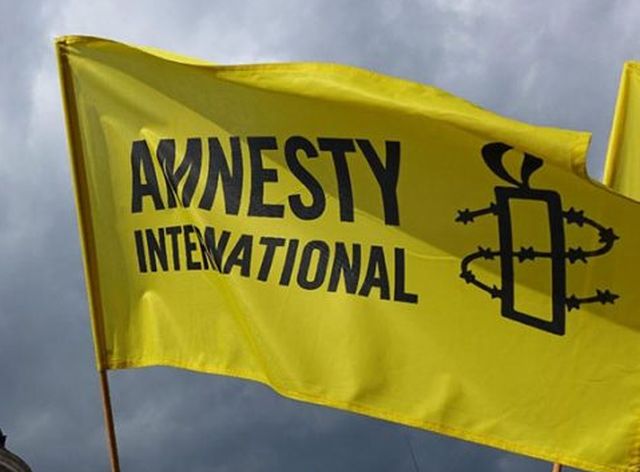
by Editor | May 25, 2021 | Entrepreneurship, News, Social Entrepreneur, Success Stories, Women Entrepreneur

Dr Geeta Bora (center) (Photo source: FB Spherule Foundation)
By Maeeshat.in,
Mumbai : In a State where a majority of female population is devoid of basic facilities to maintain menstrual hygiene and it’s still considered as taboo, disease, sin, curse or a secret by larger portion of the society, Pune based ‘Spherule Foundation’ in a first of its initiative has started an awareness program on menstrual hygiene in schools, colleges, orphanages, slums, villages and communities across the length and breadth of this country.
Spherule Foundation, founded by Dr Geeta Bora, has done PhD in computer science and worked in USA for 9 years as software engineer left job and started this NGO with an aim to bring a deep-rooted sustainable change in people’s lives by creating an equal, just and sustainable society in India.
We at Spherule Foundation have found that girls in our society mostly hear negative and outdated information riddled with myths about menstruation from their taboo, disease, sin, curse or a secret family, friends and relatives. They don’t even know that menstruation is a biological and natural process as a result they also start believing myths and practice restricting customs imposed upon them. Thus, we came up with creative idea of writing a kids and teenager friendly book called ‘Moon Time’ that will aware our young girls who are just keeping their steps in puberty or already reached to that age about all the facts they should know about periods & menstrual hygiene, said Geeta.
Our educational book titled ‘Moon Time’ which reflects power of menstruation explains our young girls in creative way about biology of their bodies, what periods are, why it happens and how it’s completely natural, important and healthy process and most importantly it will explain why period is completely normal and it should not affect their normal day today life and they can do all the activities and should not feel restrained, Geeta explains. The Foundation also claims that the book ‘Moon Time’ we will answer almost all questions a young girl can have related to periods and hygiene. We have taken many doctors’ approval on the content and it’s well researched and medically accurate.
To take this program into the next level the Spherule Foundation is also raising funds through ‘Crowdera’, an US based fintech company provides free fundraising platform helps to raise funds for a cause. “I have done crowd funding in past also but Crowdera is best platform for NGO’s as they are truly free fundraising platform for Nonprofits. They don’t cut a single dollar from donor’s contribution. I recommend Crowdera to every serious fundraiser,” said Geeta.
Besides creating awareness among masses the organisation is also providing sanitary napkins in slum areas and remote areas in the country to meet the goal from every corner of the society. Way forward, the Spherule Foundation has a dream of a future where menstruation is not taboo but a welcome transition into womanhood for girls and they refuse to be treated as less capable, weaker, dirty or impure. It’s high time we speak openly about menstruation in India, we truly need to quash its taboos one at a time, added Geeta.

by Editor | May 25, 2021 | News, Politics
 New Delhi : The Supreme Court on Friday imposed a cost of Rs 1 lakh on an NGO seeking directions for enforcement of country-wide prohibition of liquor – a provision under Article 47 of the Constitution’s Directive Principle of State Policy which calls for endeavour to prohibit intoxicating drinks and drugs harmful to health.
New Delhi : The Supreme Court on Friday imposed a cost of Rs 1 lakh on an NGO seeking directions for enforcement of country-wide prohibition of liquor – a provision under Article 47 of the Constitution’s Directive Principle of State Policy which calls for endeavour to prohibit intoxicating drinks and drugs harmful to health.
Describing the plea by Visakhapatanam-based Chaitanya Sravanthi as frivolous, the bench of Justice Rohinton Fali Nariman and Justice Navin Sinha imposed the cost on the NGO, which had moved the court under under Article 32 of the Constitution in public interest.
At the outset of the hearing, the bench asked the counsel for the petitioner to read the Constitution’s Article 37 which says that the provisions contained under the Directive Principle of State Policy (DPSP) “shall not be enforceable by any court, but the principles therein laid down are nevertheless fundamental in the governance of the country and it shall be the duty of the State to apply these principles in making laws”.
The NGO had sought the enforcement of Article 47 under the Directive Principle of State Policy which says, ” … the State shall endeavour to bring about prohibition of the consumption except for medicinal purposes of intoxicating drinks and of drugs which are injurious to health.”
It had sought the direction for the inclusion of alcohol in the list of prohibited products and framing of policy for the implementation of the Article 47 in all the states, contending that due to the lack of uniform national policy, similar to tobacco ban, drinking of alcohol was increasing day by day resulting in deaths due to related health problems, increase in crime, financial loss to the people especially daily labourers.
—IANS

by Editor | May 25, 2021 | News, Politics
 New Delhi : In a letter written to Law Minister Ravi Shankar Prasad on Tuesday, a Muslim body has demanded that the triple talaq or instant divorce should be made an offence under the Domestic Violence Act and should not be criminalised.
New Delhi : In a letter written to Law Minister Ravi Shankar Prasad on Tuesday, a Muslim body has demanded that the triple talaq or instant divorce should be made an offence under the Domestic Violence Act and should not be criminalised.
In its letter to Prasad, the Indian Muslims for Secular Democracy (IMSD), an NGO, said it supported a legislation to declare instant triple talaq an illegal act, but “strongly opposes” any move by the government to criminalise the practice, punishable with three years in jail plus fine.
“The IMSD fully supports the need for a legislation dealing with abolition of triple talaq. It also recognises the need for penal provisions in the Act so that Muslim men realise that committing the illegality of triple talaq will henceforth have serious consequences. However, the IMSD is not convinced that the solution lies in a straight-forward, single-step criminalisation of the instant divorce practice,” the letter read.
“Moreover, we are seriously concerned with the fact that the draft bill — Muslim Women (Protection of Rights on Marriage) Act — makes triple talaq a non-bailable offence punishable with a jail term of three years and fine. The IMSD is concerned with the serious implications of a single-step criminalisation of triple talaq for several reasons,” it added.
The letter pointed out that since the socio-economic status of the majority of Muslims was low, the case expenses and the subsequent jail term if convicted would leave the erring husband finacially devastated.
“Also, the woman victim of triple talaq too must find money to hire a lawyer to press for her claims of maintenance, child custody, etc. Where will a husband in jail for three years find money to pay for the maintenance of his wife and children?” it said.
“For these reasons, the IMSD is of the view that all things considered, the proposed new law may simply provide that triple talaq, which is illegal, will be treated as ‘domestic violence’ as defined under the secular Protection of Women from Domestic Violence Act 2005.
“Once the Domestic Violence Act kicks into place, it immediately opens up the possibility of various reliefs provided under the Act for a victim of triple talaq. These include protection against violence, right to residence in the marital home, maintenance, medical facility, compensation…,” it said.
The letter stressed that the proposed law should declared triple talaq procedure as illegal and not talaq (divorce) per se.
The IMSD said that any legislation dealing with the issue of triple talaq should be comprehensive and lay down the entire correct procedure of pronouncing talaq in accordance with the Islamic law instead of only penalising the practice.
—IANS

by Editor | May 25, 2021 | News
 New Delhi : India is among the deadliest countries for defenders of rights related to land, territory, environment, rights NGO Amnesty International said on Tuesday.
New Delhi : India is among the deadliest countries for defenders of rights related to land, territory, environment, rights NGO Amnesty International said on Tuesday.
In its global report ‘Deadly but Preventable Attacks: Killings and Enforced Disappearances of Those who Defend Human Rights’, released on Tuesday, the rights watchdog said: “In India, journalists, land rights activists, and those advocating the rights of ethnic and religious minorities, Dalits and Adivasis (tribal) are among those at risk of attack.”
Among the deadliest countries for this group of human rights defenders are Brazil, Colombia, the Philippines, India and Honduras, it said.
According to an Amnesty release, as many as 3,500 human rights defenders were killed worldwide since 1998 while the number in 2016 was 281– a significant increase from 156 defenders killed in 2015 and 136 in 2014.
Also, 48 journalists were killed worldwide in 2016, according to the Committee to Protect Journalists.
The report included testimonies from human rights defenders as well as their relatives and colleagues in India, Argentina, Brazil, Colombia, Democratic Republic of the Congo, Honduras, Indonesia, Kenya, Mauritania, Mexico, Russia, South Africa, South Sudan and Syria.
Many described how victims’ pleas for protection had been repeatedly ignored by the authorities and how the attackers had evaded justice, fueling a deadly cycle of impunity, it said.
Asmita Basu, Programmes Director at Amnesty International India, said human rights defenders were painted as a threat to development or traditional values.
“Human rights defenders, instead of being recognised and protected by the state, are
portrayed as ‘criminals’, ‘foreign agents’, ‘anti-nationals’ and ‘terrorists’, and painted as a threat to development or traditional values. Such labels are divisive, signal contempt for constitutional rights, and give a green light to further abuses,” she said, as per the release.
The report has brought together stories from around the world including that of journalist Gauri Lankesh, who was fatally shot outside her home in Bengaluru in September 2017.
It also mentioned Chhattisgarh’s Jailal Rathia, who had challenged the Adivasi land grabbing and later died of what was suspected as deliberate poisoning, and killing of Maharashtra Dalit activist Chandrakant Gaikwad.
The report focused on the gravest of violations against human rights defenders– killings and enforced disappearances.
“The motives behind these attacks are multiple and layered. Some people are attacked because of their legitimate activities, for example, as they stand up to powerful actors violating human rights, share information and raise awareness, or confront discriminatory public opinion and social norms. Others are attacked both for what they do and who they are,” it said.
The human rights defenders included those defending the rights of women, lesbian, gay, bisexual, transgender and intersex people and indigenous peoples and minority groups, it added.
—IANS




